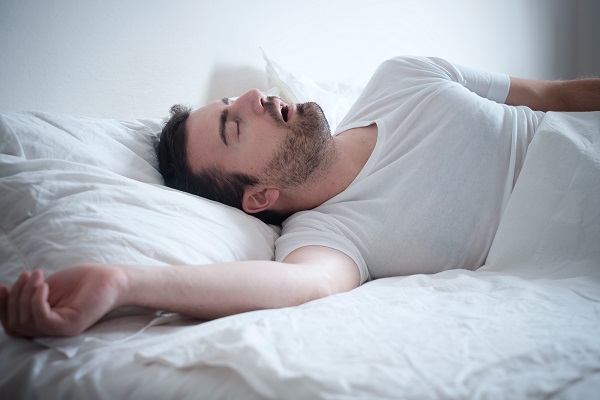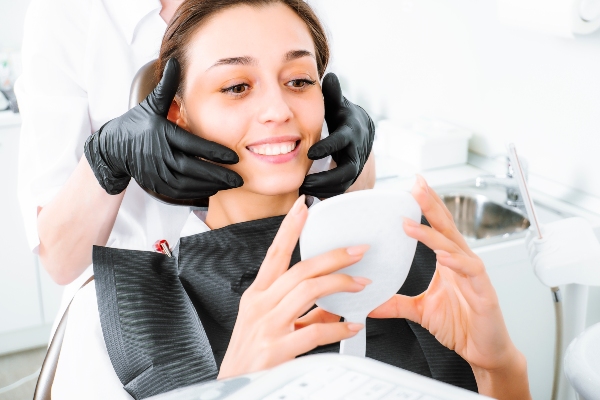How Can a Dental Device Control Sleep Apnea?

If you suffer from sleep apnea, then a doctor may have recommended that you use a continuous positive airway pressure machine (CPAP) to help keep your airway open during the night. While this is a good option for many people, it is not for you. You may have heard about dental devices and wondered what they are. These devices can be very effective in treating sleep apnea. Read on to learn more about them.
Types of sleep apnea devices
A dentist can fit a patient for one of two main types of sleep apnea devices. These devices work well for patients who have mild to moderate sleep apnea. Patients who have more severe forms of sleep apnea may benefit from other types of treatments. However, for patients who do not want to have a CPAP device, dental devices can be a viable option. A patient will be fitted for the device by a dentist and wear the device in the mouth each night.
One of the most common types of dental devices is a mandibular advancement device (MAD). This type of device looks similar in appearance to the mouthguards that are worn in sports. This device goes over the lower and upper jaws. It has metal hinges so the patient can gently ease the lower jaw forward. Some types of mandibular advancement devices also allow the patient to control how much the jaw is eased forward.
A tongue retaining device is not as common as a mandibular advancement device. However, it is used for patients whose tongues fall back to cover the airway. This type of device is a sort of splint. It holds the tongue in place in the mouth, so it does not cover the airway during sleep.
After getting a dental device
After getting a sleep apnea dental device, patients will need to visit the dentist soon so that the dentist can check the device. A dentist can also determine if the device is working well for the patient. If necessary, changes can be made so that it works better.
It is important for patients to continue to have regular visits to the dentist after getting a sleep apnea dental device. The device can sometimes cause problems with teeth alignment or the patient’s bite, so a dentist will need to keep an eye on that. If problems with the bite are occurring, the dentist can make any changes that are needed to prevent this.
Visit a dentist today
The right treatment for your obstructive sleep apnea will depend on many factors, including the severity of your sleep apnea. However, if a dental device is right for you, then you can visit a dentist to get fitted for one. A dentist can take your medical history to help you determine if this type of treatment is a good option for you. No matter what type of treatment you ultimately choose, it is important to have sleep apnea treated quickly.
Request an appointment here: https://www.newyorkdentaloffice.com or call New York Dental Office at (212) 548-3261 for an appointment in our New York office.
Check out what others are saying about our services on Yelp: Read our Yelp reviews.
Recent Posts
A root canal removes the infected pulp, then cleans and seals the tooth. Many patients may be unsure if there is anything else they need to do after the root canal. The answer is yes; they will need a dental restoration to restore the tooth's functionality. Let us dive into why leaving a treated tooth…
A dental restoration can improve your appearance and dental health. Your dentist can help you prepare for your procedure. The consultation can also tell you how you should care for your new smile. Here are the details if you want to know how to maintain your dental restoration for lasting results.Some fluoride treatments and toothpaste…
Dental restoration is a term used to describe the process of repairing or replacing damaged, decayed, or missing teeth. Several dental restoration options are available to patients, ranging from simple fillings to more complex procedures such as dental implants and crowns. This article will explore some of the most common dental restoration options available and…
A restorative dentist can help transform dental health and restore confidence in your smile. These dental professionals address a variety of dental issues, from missing teeth to damaged enamel. The goal of restorative dentistry is to improve both the function and appearance of your teeth, allowing you to achieve better oral health and renew your…



